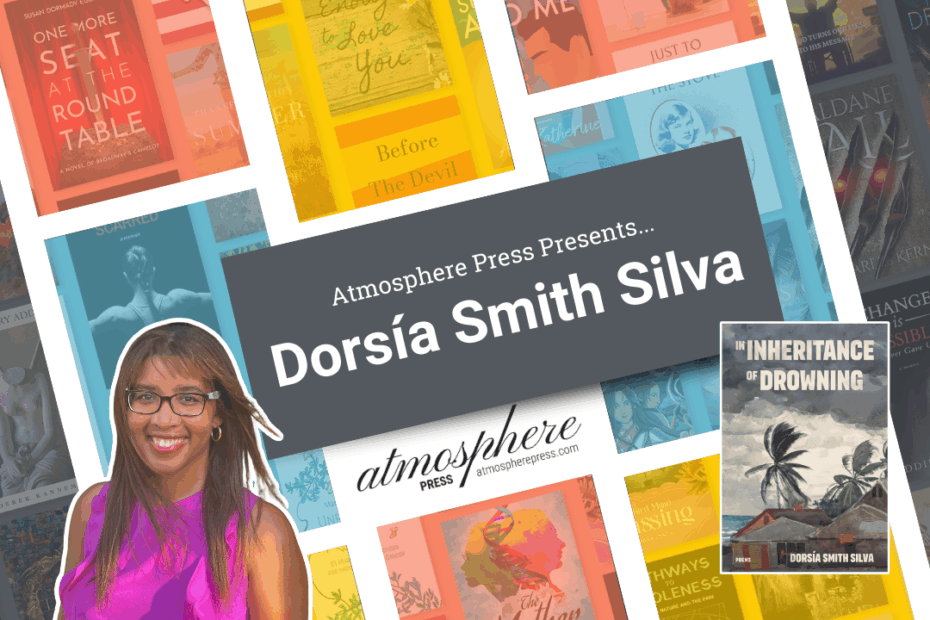An Interview with Dorsía Smith Silva

Dorsía Smith Silva is the author of In Inheritance of Drowning (CavanKerry, 2024), which was a finalist for the Whirling Prize and reviewed by Publishers Weekly. She is a multi-nominated Pushcart Prize nominee, Best of the Net finalist, Best New Poets nominee, Cave Canem Poetry Prize Semifinalist, Obsidian Fellow, Poetry Editor at The Hopper, and Full Professor of English at the University of Puerto Rico, Río Piedras.
Literary Hub, Poets.org, and The Los Angeles Review have published Dorsía’s work, and poems are forthcoming in The Ecopoetry Anthology: Volume II, The Cimarron Review, and Beloit Poetry Journal. She has attended the Bread Loaf Environmental Writers’ Workshop, Bread Loaf Writers’ Workshop, Kenyon Review Writers’ Workshop, Tin House Winter Workshop, Looking Glass Rock Writers’ Conference, and Poets and Scholars Summer Writers Retreat at the Institute for the Study of Global Racial Justice.
Dorsía is the recipient of the Katharine Bakeless Nason Scholarship from Bread Loaf and Voices of Color Fellowship (Second Place) from Martha’s Vineyard Institute of Creative Writing. She is also a member of the Get the Word Out Poetry Cohort and 5 Over 50 Cohort of Poets & Writers in 2024. Moreover, she is the author of Good Girl (poetry micro-chapbook), editor of Latina/Chicana Mothering, and the co-editor of seven books. Looking to increase the visibility of poetry by BIPOC authors, she is the creator of the Smith Silva Challenge, which is a reading challenge that highlights poetry books by BIPOC authors.
Dorsía Smith Silva has a Ph.D. in Caribbean Literature and Language. She is on social media @DSmithSilva.
Who/what made you want to write? Was there a particular person, or particular writers/works/art forms that influenced you?
The library was one of my favorite places as a child, and I was inspired to write because I was surrounded by so much talent. I remember looking at the poetry of Maya Angelou, Nikki Giovanni, and Langston Hughes, and thinking that I could be a writer as well. I was inspired by their profound craft, and their poetry still motivates me today.
What other professions have you worked in? What’s something about you that your readers wouldn’t know?
In addition to being a writer, I am a Full Professor of English at the University of Puerto Rico, Río Piedras, and poetry editor at The Hopper, which is an environmental journal. Before becoming a professor, I had many summer jobs taught me that I did not want to work the usual 9-5 business job. Being a professor gives me some flexibility to write in the morning, and I love discussing literature all day.
Tell us the story of your book’s title. Was it easy to find, or did it take forever?
The title, In Inheritance of Drowning, is based on a poem in the collection. I knew fairly early on what the title of the book would be because of the symbolism of drowning. I also really like the meaning of inheritance. I asked myself, “What kind of world have we inherited and what kind of world will our children inherit?” I hope it is a better world.
How did it feel when you first saw your book cover? Or when you first held your book in your hands?
I gave a cry of excitement when I saw the book cover of In Inheritance of Drowning. It was more beautiful than I thought it would be, and it captured everything that I had wanted the book to convey, especially about hurricanes, nature, and the Caribbean. The painting by Winslow Homer on the cover was perfect.
What is one thing you hope readers take away from reading your book? How do you envision your perfect reader?
I really hope readers are ready for a social transformation after they finish reading the book. I also hope that they will think of our mutual relationship with the environment.
What was the most rewarding/meaningful part of publishing your book?
The most rewarding part was having my story being shared with others. I am thrilled that poems about Hurricane María, Puerto Rico, and the social, racial, and political injustices, especially against Black and brown bodies, are centered in In Inheritance of Drowning, and readers can have a greater understanding of these experiences.
What new writing projects are you currently working on? Or, other projects that are not writing?
I am currently working on a second poetry manuscript, which I am very excited about. I am also challenging myself to write a television show script. I am revising it right now, and then I think the next step is to pitch it. It is a whole new world for me, so I am still learning about the process. Lastly, I am continuing to develop the Smith Silva Challenge which highlights poetry books by BIPOC authors in November. November 2024 was the start, and I am now working on the website and promotion on social media.
Are you a writer, too? Submit your manuscript to Atmosphere Press.

Atmosphere Press is a selective hybrid publisher founded in 2015 on the principles of Honesty, Transparency, Professionalism, Kindness, and Making Your Book Awesome. Our books have won dozens of awards and sold tens of thousands of copies. If you’re interested in learning more, or seeking publication for your own work, please explore the links below.
